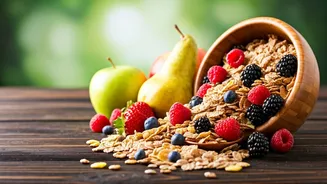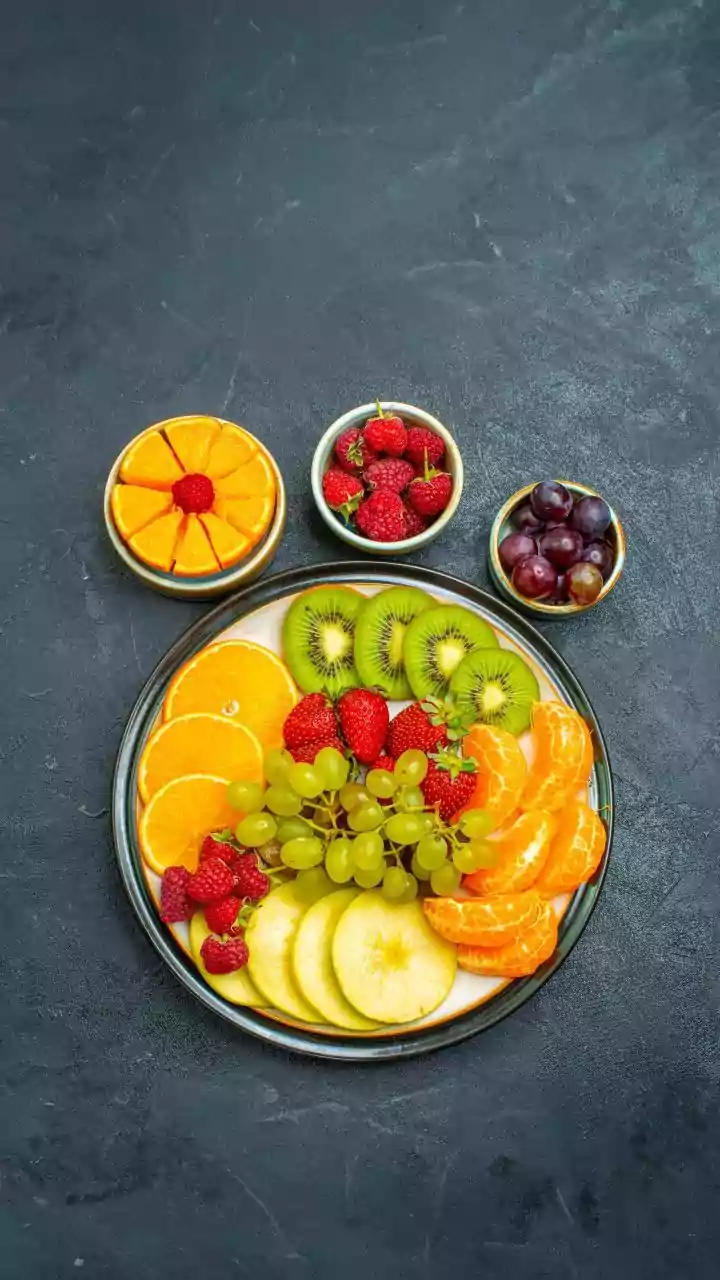Fiber's Crucial Role
Fiber, an often overlooked nutrient, is essential for a healthy digestive system. It aids in the smooth movement of food through the gut and provides nourishment
for the beneficial bacteria living there. This interaction contributes to overall gut health and a stronger immune system. Fiber-rich foods promote regular bowel movements, preventing constipation and reducing the risk of conditions like diverticulitis and hemorrhoids. Moreover, a diet rich in fiber can help control blood sugar levels and reduce the risk of heart disease, as fiber can help lower cholesterol. The recommended daily intake of fiber is approximately 25-30 grams, making it crucial to include fiber-rich foods in your regular diet to reap these health rewards. This article will explore specific food options that can assist you in meeting this daily target.
Apples: Nature's Sweetness
Apples are a readily accessible and versatile source of fiber. A medium-sized apple contains around 4.4 grams of fiber, with a significant amount residing in the skin. The type of fiber in apples is primarily soluble fiber, specifically pectin. Pectin has been shown to slow down the digestion of carbohydrates, which helps manage blood sugar levels. It also helps in the movement of food through your digestive tract, preventing constipation and supporting the growth of beneficial gut bacteria. Apples are packed with antioxidants and other essential nutrients, offering additional health benefits beyond their fiber content. Including an apple a day in your diet is a delicious and simple strategy to boost your fiber consumption, and you can enjoy them in various ways: as a quick snack, added to salads, or incorporated into baked goods, apples are a great choice.
Berries: Tiny, Mighty Powerhouses
Berries, such as blueberries, raspberries, and strawberries, are exceptionally high in fiber for their size. Raspberries, for example, provide about 8 grams of fiber per cup, while blueberries and strawberries also offer impressive amounts. These fruits are not only fiber-rich but also rich in antioxidants and vitamins. The antioxidants present in berries protect your cells from damage, reducing the risk of chronic diseases. Berries support a diverse microbiome by feeding the good bacteria in your gut. They promote a well-balanced digestive system by helping maintain regular bowel movements and promoting optimal digestive function. You can enjoy berries in a variety of ways: as a quick snack, added to smoothies, or sprinkled on top of your breakfast cereal. They are a simple and delicious way to increase your fiber intake and enhance your overall health.
Broccoli: The Green Giant
Broccoli, a cruciferous vegetable, is not only a nutritional powerhouse but also a significant source of fiber. A single cup of cooked broccoli provides approximately 5 grams of fiber. Broccoli also boasts a high concentration of vitamins, minerals, and antioxidants, including vitamin C and vitamin K. These compounds play a vital role in immune function and bone health. Broccoli's fiber content helps in the digestive process and supports the growth of beneficial gut bacteria. Studies show that broccoli may assist in preventing certain cancers and reducing inflammation in the body. You can enjoy broccoli steamed, roasted, or added to stir-fries or salads. By including broccoli in your daily diet, you not only increase your fiber intake but also enhance your body’s defenses and reduce your risk of disease.
Lentils: Budget-Friendly Fiber
Lentils are an affordable and versatile food that is packed with fiber, with around 15.6 grams in one cooked cup. In addition to being rich in fiber, lentils are an excellent source of protein and essential nutrients, like iron and folate. The high fiber content in lentils helps keep you feeling full for longer, making them a great option for weight management. Lentils can help lower blood sugar levels and improve heart health, due to the slow release of energy provided by their fiber content. They are also incredibly easy to prepare and can be added to soups, stews, salads, or served as a side dish. Lentils are a smart and nutritious choice for boosting your fiber intake. Regularly including lentils in your diet supports healthy digestion and contributes to your overall well-being.
Chia Seeds: Tiny Fiber Bombs
Chia seeds, small but mighty, are incredibly rich in fiber. Just two tablespoons of chia seeds contain about 10 grams of fiber. They also offer a good source of omega-3 fatty acids, antioxidants, and minerals like calcium and magnesium. When combined with liquid, chia seeds expand, increasing their ability to keep you full and improve digestive health. Chia seeds help regulate blood sugar levels, which is vital for overall health. They are versatile and can be added to various dishes. Sprinkle chia seeds on cereal, add them to smoothies, or incorporate them into baked goods for a boost of fiber and nutrients. Consuming chia seeds is a great way to increase your daily fiber intake and enjoy multiple health benefits, from promoting digestive health to supporting heart health.



















